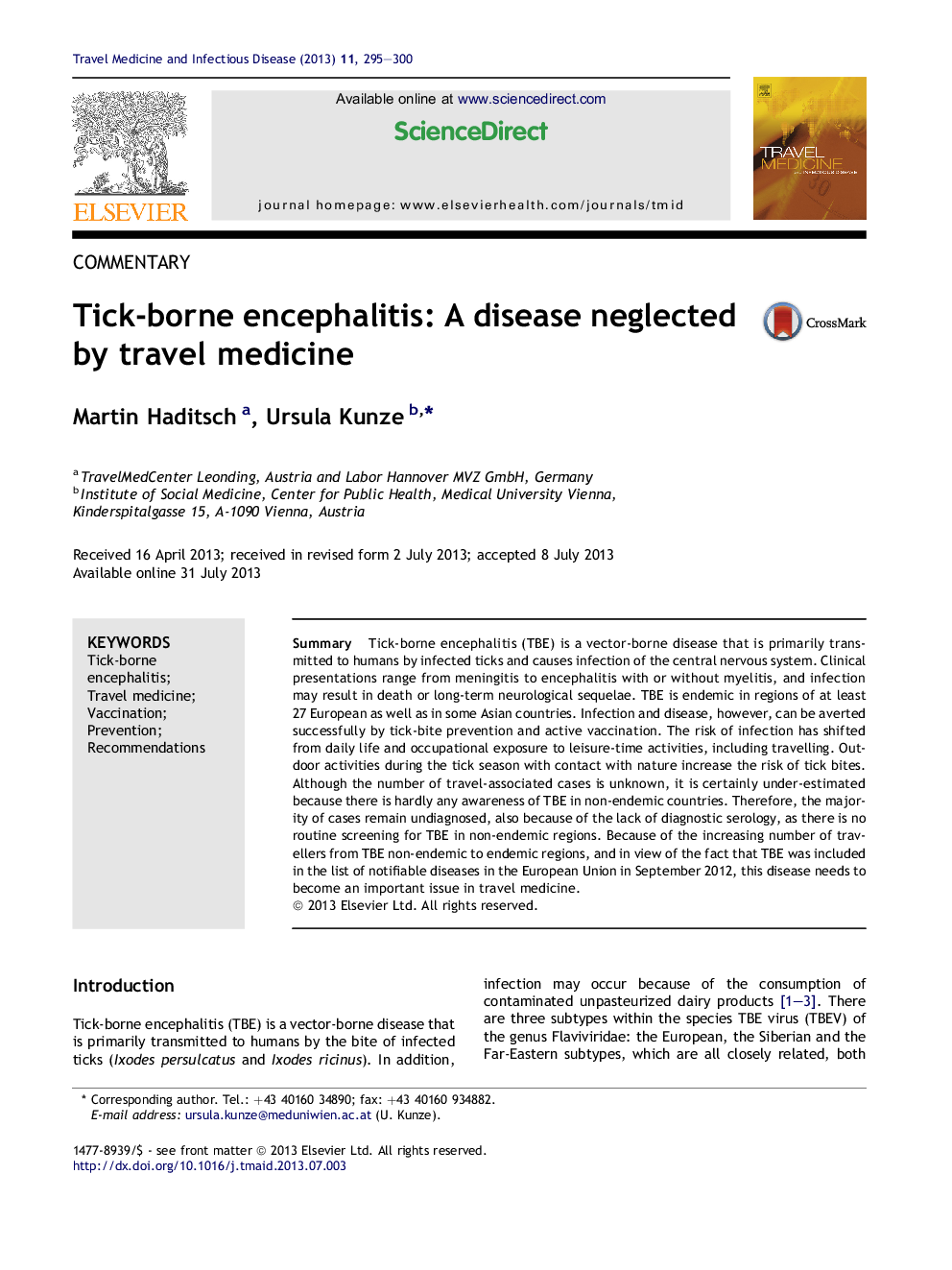| Article ID | Journal | Published Year | Pages | File Type |
|---|---|---|---|---|
| 3392778 | Travel Medicine and Infectious Disease | 2013 | 6 Pages |
SummaryTick-borne encephalitis (TBE) is a vector-borne disease that is primarily transmitted to humans by infected ticks and causes infection of the central nervous system. Clinical presentations range from meningitis to encephalitis with or without myelitis, and infection may result in death or long-term neurological sequelae. TBE is endemic in regions of at least 27 European as well as in some Asian countries. Infection and disease, however, can be averted successfully by tick-bite prevention and active vaccination. The risk of infection has shifted from daily life and occupational exposure to leisure-time activities, including travelling. Outdoor activities during the tick season with contact with nature increase the risk of tick bites. Although the number of travel-associated cases is unknown, it is certainly under-estimated because there is hardly any awareness of TBE in non-endemic countries. Therefore, the majority of cases remain undiagnosed, also because of the lack of diagnostic serology, as there is no routine screening for TBE in non-endemic regions. Because of the increasing number of travellers from TBE non-endemic to endemic regions, and in view of the fact that TBE was included in the list of notifiable diseases in the European Union in September 2012, this disease needs to become an important issue in travel medicine.
